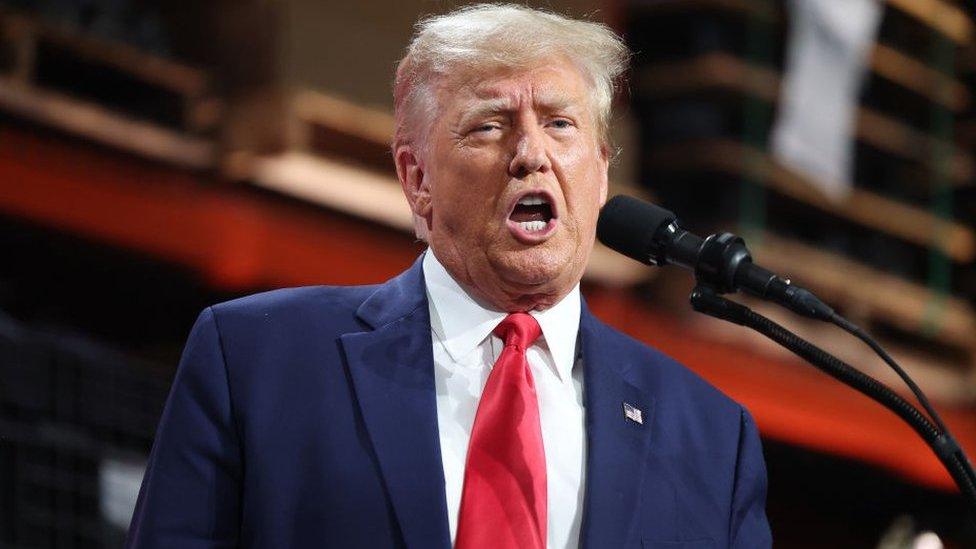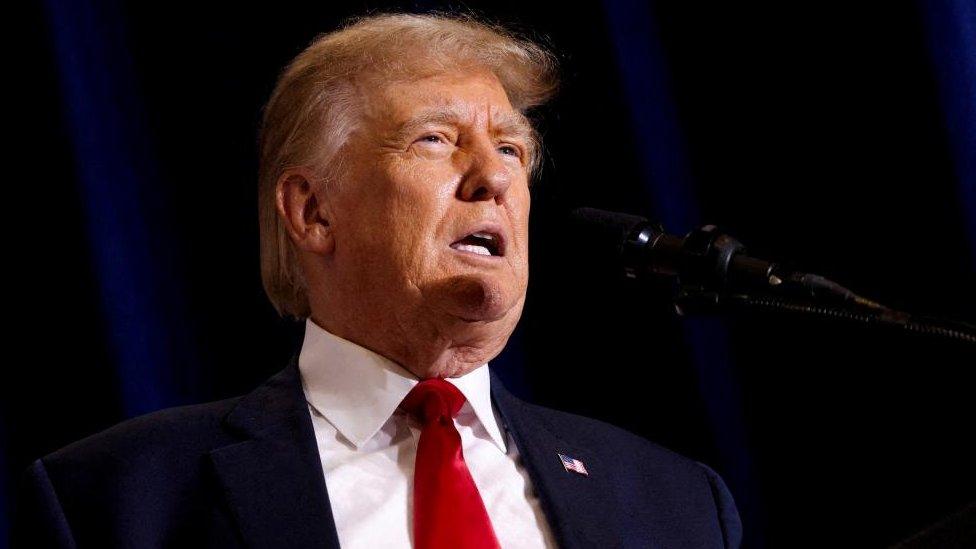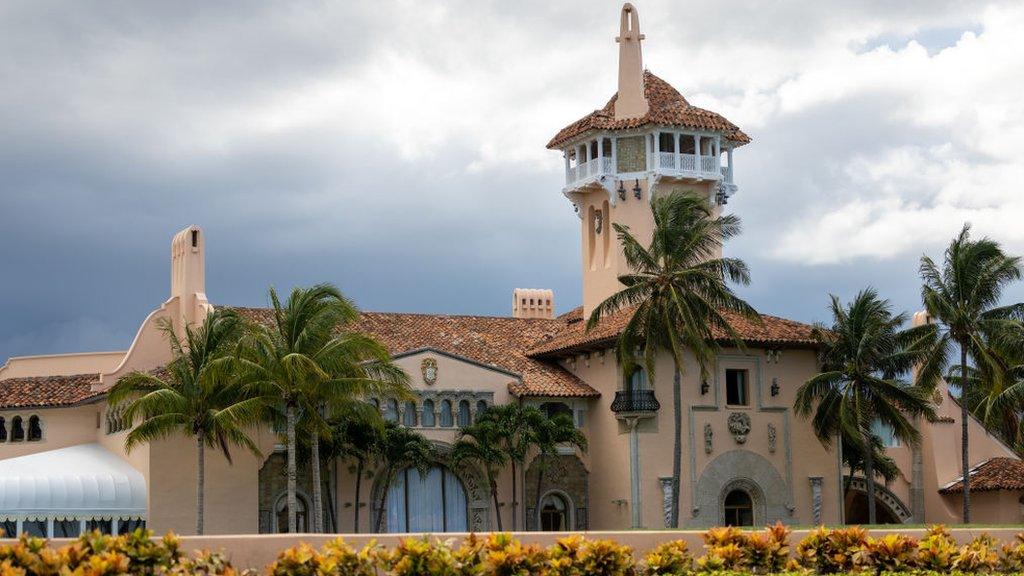Trump loses bid to delay New York civil fraud trial
- Published

A New York appeals court has rejected former President Donald Trump's bid to delay a civil fraud trial against him in a case that leaves his business empire in jeopardy.
The decision paves the way for a trial to begin next Monday.
Mr Trump and three of his adult children are expected to be called as witnesses in the case.
The decision comes after New York Judge Arthur Engoron this week ruled Mr Trump was liable for business fraud.
New York Attorney General Letitia James has accused Trump, his two adult sons and the Trump Organization of inflating the value of their properties by more than $2bn (£1.65bn) to suit the needs of their business.
In his ruling issued on Tuesday, Judge Engoron agreed, finding Mr Trump had misrepresented his wealth by hundreds of millions of dollars.
Mr Trump's legal team had sought to delay the case while his attorneys challenged earlier rulings.
Mr Trump and the other defendants in the case have argued that they never committed fraud.
But Thursday's appeals court ruling means a trial in the case will go ahead as scheduled on Monday 2 October.
The case is a bench trial, meaning it will be decided not by a jury but by Judge Engoron, who is presiding over the trial. He has said it could take as long as three months to hear the case.
Judge Engoron's Tuesday ruling resolved the key claim of fraud in Ms James' lawsuit, leaving the trial to focus on a more narrow set of six remaining fraud claims and on determining penalties against Mr Trump.
Ms James is seeking a fine of $250m (£204m) and a ban on Mr Trump doing business in his home state.
Earlier on Thursday, Ms James' office released a list of dozens of possible witnesses for the trial, including Mr Trump himself, his sons Eric and Don Jr and daughter Ivanka.
The BBC has reached out to Mr Trump's lawyers for comment.
Mr Trump has denied any wrongdoing. Earlier this week on his social media platform Truth Social, he attacked Mr Engoron for carrying out what he claimed was a politically motivated witch hunt.
Among several decisions, Justice Engoron determined Mr Trump overvalued his Mar-a-Lago, Florida property by 2,300% and claimed his penthouse at Trump Tower in New York was three times its actual size.
Ms James alleged Mr Trump issued these false records to get better terms on loans and insurance deals and to pay less tax.
Mr Engoron's ruling severely limits Mr Trump's ability to conduct business in New York, where he launched his real estate empire.
The Trump Organization could be forced to relinquish control of their properties to a court-appointed receiver, or ultimately have to sell some of their landmarks.
Mr Trump's lawyers asked for more clarity on which properties could be affected at a hearing on Wednesday. The judge has yet to give a clear answer.
The civil fraud case is one of several legal battles the former president is facing, including criminal charges over election interference and handling of classified documents.
Also on Thursday, a court in London scheduled a trial for next month regarding a lawsuit Mr Trump filed against former British intelligence officer Christopher Steele and his company Orbis Business Intelligence.
Mr Steele wrote the controversial "Steele dossier", which was published by news website Buzzfeed 10 days before Mr Trump took office, and contained flawed allegations linking Mr Trump's 2016 presidential campaign and the Russian government.
Related topics
- Published22 March 2024

- Published27 September 2023

- Published22 September 2022
